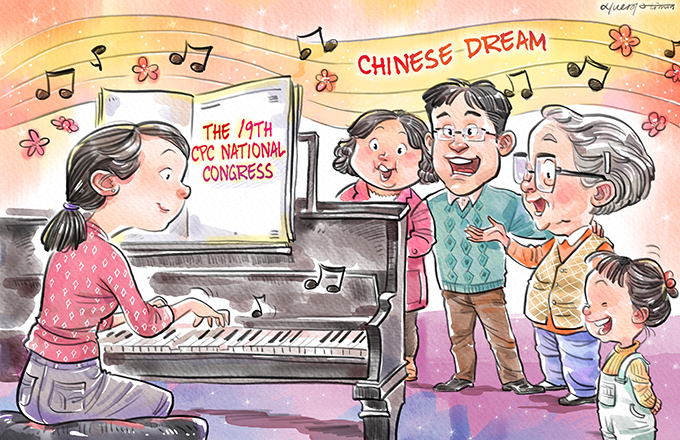Policy continuity to ensure quality growth
The just-concluded 19th National Congress of the Communist Party of China was the most anticipated political event of the year.
The congress has two important implications. General Secretary Xi Jinping has further strengthened his role as the core of the Party. And, therefore, the country's current policy direction will continue in the years to come, but with a greater focus on financial and economic reforms.
During his speech at the opening of the 19th Party Congress, Xi declared that China has entered a "new era of socialism with Chinese characteristics". His long-term vision for China in this new phase of development is termed the Chinese Dream.
The first phase of the first of the "Two Centenary Goals", that is, to build a moderately prosperous society, will be completed by 2020. After that, China has a two-stage development plan for the period up to 2050. In the first stage, from 2020 to 2035, the goal is to build on the foundation of the moderately prosperous society in a way that, after another 15 years of hard work, China becomes a "great modern socialist country that is prosperous, strong, democratic, culturally advanced, harmonious, and beautiful".
Xi's strategy spans several dimensions, including a focus on ongoing reforms to ensure qualitative, rather than quantitative, economic growth. The key areas of reform relevant for investors are:
Accelerated supply-side reform for a more sustainable economy. Deeper supply-side structural reform will be a critical part of China's ongoing economic transition. This reinforces Chinese leaders' commitment to achieving higher quality and more sustainable economic growth, instead of pursuing rapid growth at the expense of the environment and capacity.
Industrial upgrade riding on the "Made in China 2025" initiative. The government plans to boost its industrial capability by implementing favorable policies based on the "Made in China 2025" initiative, which the State Council, China's Cabinet, unveiled in 2015. In particular, this is expected to benefit strategic sectors such as advanced information technology, robotics, aerospace, aviation, railways, new-energy vehicles, power equipment, agricultural machineries, new materials and medical devices.
Expediting State-owned enterprise reform. Policymakers plan to accelerate and expand SOE reform likely through mixed-ownership, mergers and acquisitions, employee incentive plans, initial public offerings and debt-to-equity swaps.
Continuous regulatory tightening to deleverage the economy. The need for further regulatory tightening was restated at the 19th Party Congress, and the establishment of a central government "super-regulator", which aims to improve regulatory coordination, was announced.
Emphasis on environmental protection. Xi called for continuous "green development", and reiterated that, "clear waters and green mountains are as good as mountains of gold and silver". We expect more policies on green manufacturing, clean energy and green finance to be implemented in the coming years.
Party leaders also called for further tightening of the anti-corruption campaign and strengthening of national security while highlighting social issues that need attention, such as the income gap, healthcare, unemployment, education and housing.
In other words, policy continuity was reaffirmed at the 19th Party Congress to ensure "quality" growth. China's economy is on track for moderation in the second half of the year and to end 2017 well above the government's growth target of "around 6.5 percent".
More detailed economic agenda will be released at the Central Economic Work Conference later this year, the National People's Congress in March, and the Third Plenum of the 19th CPC Central Committee in 2018.
But one thing is certain, political, economic and currency stability will deepen investors' confidence in China in the coming years. And we remain confident of Chinese offshore equities within our Asia tactical asset allocation, and continue to focus on new-economy sectors.
The author is the regional chief investment officer& chief China economist at UBS Wealth Management.

























